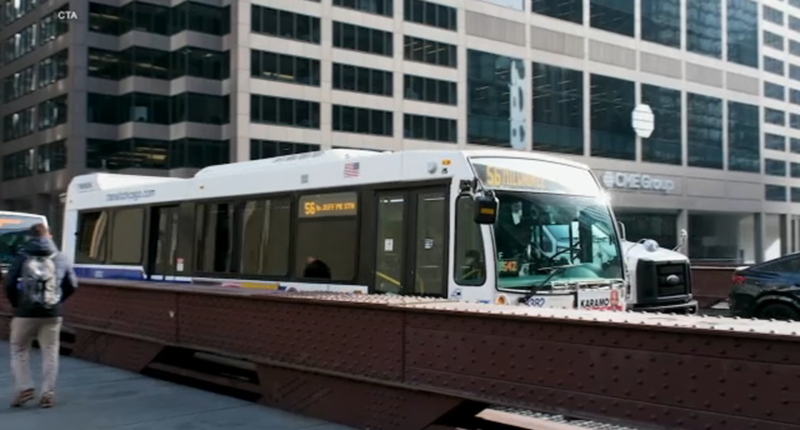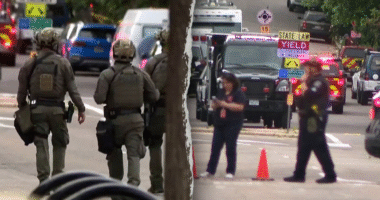CHICAGO (WLS) — On the verge of a fiscal crisis, the ABC7 I-Team has examined hundreds of millions of dollars in Chicago Transit Authority (CTA) employee overtime costs since 2019; all happening while ridership is down, and the agency’s debt continues to climb.
The CTA is facing criticisms on all fronts: Amid serious questions of safety and reliability, it’s hoping taxpayers will bail out the agency as it and other local transit agencies face driving off a fiscal cliff.
ABC7 Chicago is now streaming 24/7. Click here to watch
Now, new records obtained by the I-Team are raising questions about hundreds of thousands of dollars CTA employees made in overtime now under scrutiny, including some employees that earned double their salary in overtime alone.
With fists in the air, Chicagoland transit workers rallied in Springfield last week to call attention to a dire financial situation approaching fast.
State legislators are currently considering four bills, all aimed at reforming and funding local transit agencies, including the CTA.
Chicagoland transit agencies last month issued an “urgent warning” that without funding, public transit systems including the CTA may be forced to make unprecedented cuts to service given a $770 million budget shortfall agencies will face next year.
Those agencies and their lobbyists are hoping state legislators will come to the rescue this spring legislative session.
“The danger that has been outlined is very real,” said State Senator Ram Villivalam (D-Chicago) at a news conference on April 8. “This legislation is an opportunity for us to seize this moment, to not just plug a hole, but to plan for the future.”
Villivalam and House Leader Marcus Evans (D-Chicago) are sponsoring two bills, branded as “United We Move” that would require reforms at the agencies.
Evans said transit workforces need help from Springfield.
“These workers are on their own today, making it work, putting their lives on the line, working long hours to provide transit and transportation for the people in this Chicagoland area,” Evans said.
Chicagoland transit agencies have told lawmakers $1.5 billion is needed to reform the agencies and keep trains and buses running across the region.
But before any legislation moves forward, Representative Marty Moylan (D-Des Plaines) — who chairs the state House Transportation Committee — wants to know how the CTA and other transit agencies are spending the money they already have.
“For a billion dollars, wouldn’t you expect to have an on-time, safe and clean transit system?” Moylan said.
In recent weeks, Moylan has been zeroing in on the CTA’s overtime costs by employees.
“We have to get to the bottom of why all this overtime is being doled out,” Moylan told the I-Team. “It’s unacceptable.”
The I-Team filed a Freedom of Information Act request for CTA employee overtime records in May 2024, and just received those records last week – 11 months after we asked.
Those records show overtime costs have increased nearly 40% since 2019, from $86 million in 2019 to nearly $120 million in 2024.
Our analysis found 100 full-time employees made twice their annual salary in overtime in a single year, including a supervisor that made more than $233,000 in overtime on top of a base salary of $95,000.
Moylan concurred with the I-Team’s analysis, and said he’s raised these questions with the CTA.
“We have to hold up managers and supervisors accountable for all this overtime,” Moylan said.
In response to the I-Team’s findings, the CTA said in an emailed statement that the “increases in overtime costs have largely been attributable to the effects of the pandemic, such as significant workforce shortages, and capital construction and maintenance needs. As a result, CTA relied heavily on overtime to maintain service.”
The CTA told the I-Team it, “employs more than 10,000 union workers whose work time, pay and overtime are governed by collective bargaining agreements… Their collective bargaining agreements stipulate that work during certain days and times is done on overtime, which is a common practice.”
To address its workforce issues, the CTA says it has “hired 5,000 new employees in the past two years, aggressively working to take the stress off our existing workforce.”
The CTA also noted that transit agencies in major cities across the country are experiencing workforce challenges, and they too have turned to overtime in order to provide services.
Legislators need to approve funding by the end of next month, or the Regional Transportation Authority (RTA) warns CTA, along with Metra and Pace, will face that major budget shortfall, and that could lead to drastic service cuts.
Moylan believes the agencies need to explain costs like overtime before he and others will sign off on giving the agencies more funding.
“They wanted more than $1 billion to make these systems sustainable right now,” Moylan told the I-Team. “And we’re saying we’re not going to give you a dime until we get some reforms.”
Copyright © 2025 WLS-TV. All Rights Reserved.

















